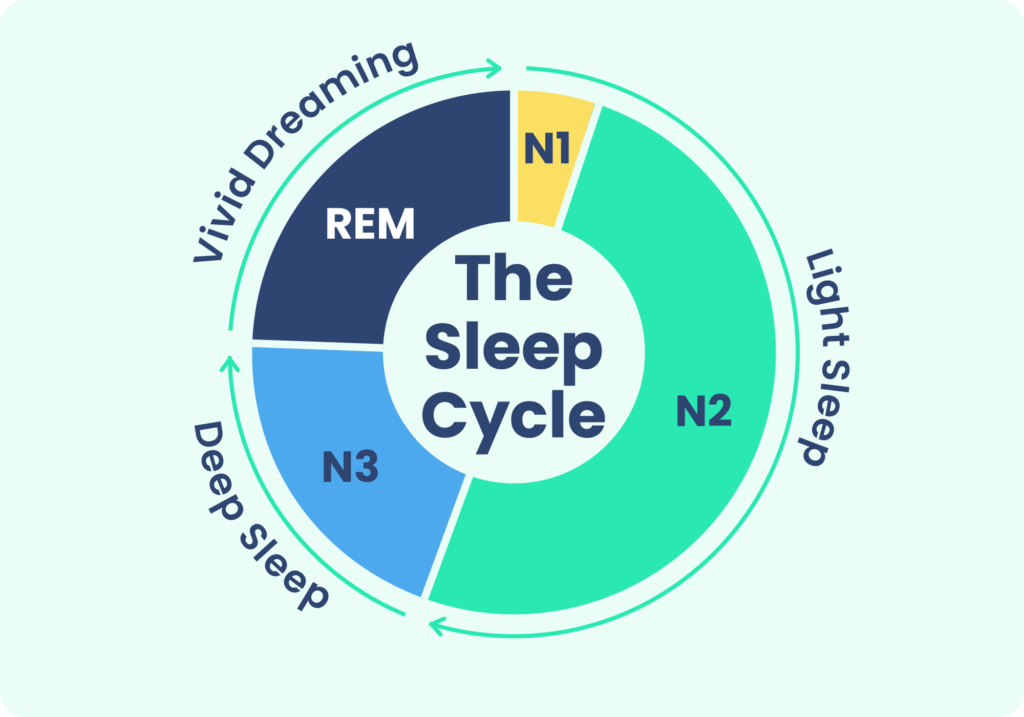Why Your Sleep Environment Matters More Than You Think
We all know that a good night’s sleep is vital for overall health, yet many people don’t realize just how much their sleep environment affects their rest. From noise levels to the comfort of your mattress, every detail plays a crucial role in determining how well you sleep. If you’re struggling with tiredness, grumpy moods, or lack of clarity of thought, your bedroom environment could be the culprit.
In this article, we’ll walk you through how you can design a sleep-promoting environment that will not only help you sleep better but also enhance your health and brain restoration processes. By paying attention to your bedroom’s light, temperature, noise levels, and comfort, you can enjoy a more restful sleep, improve your mood, and feel more refreshed each morning.
ALSO READ: How to Fall Asleep Fast in 5 Minutes: Proven Techniques for Better Sleep and Health
Why Is Sleep So Vital to Your Health?
Sleep is one of the most important aspects of human health, but it is often overlooked. The quality and duration of sleep have a direct impact on your brain function, mood, and overall well-being. When you don’t get enough rest, your brain restoration processes slow down, and you may feel grumpy, irritated, or even experience difficulty concentrating.
Sleep also helps to clear metabolic waste from your brain, balances hormone levels, and provides energy for the day ahead. If your sleep environment isn’t conducive to quality sleep, these vital processes can be disrupted. This is why optimizing your sleep environment is essential for not only better sleep but also health enhancement.
Understanding the Science of Sleep: What Happens During Sleep?

Sleep is a complex process, and understanding its stages can help you appreciate the importance of creating an optimal sleep environment. Sleep involves several stages, each contributing to your overall health:
- Non-REM Sleep (Stage 1): This is the stage when your body begins to relax, and your heart rate and breathing slow down. You are still easily awakened during this phase.
- Non-REM Sleep (Stage 2): This is the stage where your body temperature and heart rate continue to drop, preparing for deeper sleep.
- Non-REM Sleep (Stage 3): This is deep sleep. Your body and brain undergo restoration, and it becomes harder to wake up.
- REM Sleep: This is the dream stage where your brain is highly active, and your body is temporarily paralyzed to prevent harm during dreams.
Each sleep cycle lasts around 90 minutes, with deeper stages of sleep occurring earlier in the night and REM sleep becoming more prominent later. Ensuring your sleep environment promotes these stages can help improve your sleep quality and duration.
Creating the Ideal Sleep Environment: Tips for a Restful Night
Now that you understand the science behind sleep, let’s dive into actionable tips for creating a sleep-friendly bedroom environment that enhances your sleep quality.
1. Declutter Your Bedroom for a Calm, Relaxing Space

A cluttered room can negatively impact your ability to relax before sleep. Remove any distractions, such as work items or items that remind you of tasks you need to complete. Keep your sleep environment neat and organized to promote relaxation. This will also prevent unnecessary noise levels that can disrupt your rest.
2. Optimize Lighting for Better Sleep

Lighting plays a crucial role in sleep quality. Exposure to blue light from devices can interfere with your ability to fall asleep. Aim for a dark bedroom environment using blackout curtains or room-darkening shades to block outside light. If you need some light during the night, opt for a dim, warm-colored night light instead.
The best lighting for sleep is red or orange, as these wavelengths won’t interfere with melatonin production. A well-lit bedroom during the day is also essential for promoting good sleep at night.
3. Set the Right Temperature

The temperature of your room plays a big role in how well you sleep. According to sleep experts, the ideal room temperature for sleep is between 60-67°F (15.6-19.4°C). Adjusting your thermostat or using fans or heating/cooling blankets can help maintain the optimal sleep environment temperature.
4. Invest in a Comfortable Mattress and Pillows

A comfortable mattress and pillow are essential for achieving better sleep. Whether you prefer a firm or soft mattress, it’s crucial to select one that supports your sleeping posture and prevents discomfort. If purchasing a new mattress is not in your budget, try a mattress topper for added comfort.
Likewise, choose the right pillow based on your sleep position. Side sleepers benefit from thicker pillows, while back sleepers should opt for medium-thick pillows, and stomach sleepers prefer thinner ones.
5. Control Noise Levels for a Peaceful Night

Noise levels can significantly impact your sleep. If you live in a noisy area, use earplugs or consider soundproofing your room. Alternatively, a white noise machine or a fan can help drown out external sounds.
If total silence isn’t your preference, using soothing sounds, like ocean waves or rain sounds, can create a calming atmosphere and help you relax into a deep sleep.
6. Use Essential Oils for Relaxation

Aromatherapy has been shown to promote relaxation and aid in falling asleep. Scents like lavender and chamomile are known for their calming properties and can enhance the relaxing techniques you use before bed. Consider using an essential oil diffuser or adding a few drops of oil to your pillow.
How to Improve Your Sleep Quality and Duration with Healthy Sleep Habits
Creating the perfect sleep environment is only one part of improving your sleep quality. Adopting healthy sleep habits can also make a significant difference. Here are some tips for a better night’s sleep:
1. Stick to a Consistent Sleep Schedule

Maintaining a regular sleep schedule, even on weekends, helps regulate your body’s internal clock and improves your sleep quality over time. Aim for at least seven hours of sleep each night.
2. Watch What You Eat and Drink Before Bed

Avoid eating large meals or drinking caffeine or alcohol too close to bedtime. These can interfere with your sleep cycles and leave you feeling irritated or groggy the next morning.
3. Practice Relaxation Techniques Before Bed

Before you settle into your sleep environment, take time to unwind. Engage in calming activities like reading, gentle yoga, or deep breathing exercises. These relaxation techniques help lower your stress levels and prepare your body for sleep.
4. Limit Naps During the Day

Although naps can be refreshing, long or late naps may interfere with your ability to fall asleep at night. If you must take a nap, try to keep it to no more than 20 to 30 minutes in the morning.
5. Exercise Regularly

Exercise has been shown to improve sleep quality, but try to avoid intense physical activity right before bed. Aim to exercise during the day or early evening to support a more restful night’s sleep.
6. Manage Stress and Anxiety

Address your worries before bed to avoid lying awake feeling anxious or stressed. Write down any thoughts that may be on your mind, and practice mindfulness or meditation to calm your nerves.
Final Thoughts
In conclusion, optimizing your sleep environment is essential for achieving better sleep and enhancing your overall health. By addressing factors such as lighting, temperature, noise levels, and comfort, you can create a space that promotes relaxation and restorative sleep. In turn, you’ll experience improved brain restoration, better mood, and a more energized, focused day.
Remember, your bedroom environment is a key factor in determining your sleep quality. Implementing these simple tips can help you unlock the potential for better sleep, improved health, and a more productive lifestyle.
Love what you read? Join our community! Like, share, and follow Wikifomo for more exciting insights. Your support encourages our passion! Thank You.
FAQs
How important is my sleep environment for overall health?
Your sleep environment directly affects your sleep quality and duration. A calm, comfortable space can help restore your body and mind, enhancing both physical and mental health.
What is the best temperature for sleep?
Experts recommend keeping your bedroom between 60-67°F (15.6-19.4°C) for optimal sleep quality. A cooler room helps signal your body to relax and prepare for sleep.
How can I reduce noise to sleep better?
To improve sleep quality, use earplugs, a white noise machine, or a fan to block out distracting sounds. Soundproofing your room or moving to a quieter space can also help.
Can essential oils really help me sleep better?
Yes! Scents like lavender and chamomile can help relax your body and mind, making it easier to fall asleep. Use an essential oil diffuser for a calming atmosphere.
How can I improve my sleep habits?
Establishing a regular sleep schedule, avoiding large meals or caffeine before bed, and incorporating relaxation techniques into your nightly routine can all improve sleep quality.



